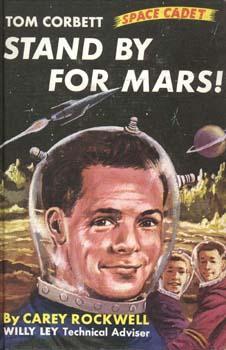Once we’d gotten settled with the cats and the hotel routine, daily life became a matter of watching the progress of the fire containment and waiting for news about water and power, and when the evacuation order might change to a warning, allowing us to go back. The CalFire damage inspection teams went through the neighborhood, and we cheered when we saw our house on the map, marked green — no fire damage! Our little neck of the woods had the misfortune to lose the tank that supplied us entirely, so a new temporary tank would have to be installed, with temporary piping, on rugged terrain, with smoldering hot spots…and our electricity came through an area that had been badly burned. Water was restored to other areas (to be truthful, just about every other area) first, although at first it wasn’t clear how badly contaminated it might be. About 5 miles of aboveground HDPE pipe melted, creating the possibility of backflow due to depressurization of water contaminated by the products of heated plastic (VOCs). Later testing revealed most if not all of that water was safe, so the Do Not Drink/Do Not Boil orders were eventually lifted, although not for our block. It seemed to be one lumbering, unfolding disaster, with visions of returning home to water safe only for flushing toilets, no power, trees apt to fall over at any time. Looters. Lost pets. Dying wildlife.
Finally the mandatory evacuation order for our street was changed to a warning, and it happened the same day when we decided to go look at our place, regardless. There were road blocks, but further up the highway so we could get in. Each passing mile brought us into more familiar territory. Driving into our little town and seeing ordinary vehicles as well as emergency equipment was a highlight, but not as tear-inducing as pulling into our carport and seeing the gate, pretty much untouched. There were chunks of ash outside, but no burning or other fire damage. The mud room and adjacent office reeked of smoke, although the interior of the house wasn’t too bad. We walked around, seeing “home,” until I wrapped my arms around my daughter, sobbing, “It’s here, it’s okay…” Home is safe.
We gathered up a few more things, then went into the garden. Despite our fears that everything would have died between the high heat, no water, and smoke, some parts were thriving. The squash plants seemed intent on taking over the county. Apples and grapefruits littered the ground. The green beans had mostly produced seed. The tomatoes looked fat and happy, now being inadvertently dry-farmed. The rhubarb was okay, and one unseasonal asparagus spear raised its solitary head. We gathered a basket of edible-sized zucchini, grapefruit, and apples, leaving a supply for the family of scrub jays that lives in our orchard. On the way out of town, we stopped at the volunteer fire department to thank them and offer grapefruit, but they couldn’t risk any ill health effects from the ash and soot, so declined with thanks.
Back at the hotel, we decided that in order to move back in, we needed water and power. There was no possibility of cleaning without these things, and between the smoke odor, the light fall of ash, the ordinary dust of several weeks, and the condition of a refrigerator without power for over two weeks, we couldn’t stay overnight without cleaning.
The next step was meeting with our smoke damage adjuster at the house. We did a walk-through, inspecting and discussing. One of the down sides of the online local community, I found, was a sort of mob effect that magnified the unwillingness of other adjusters to address issues such as toxic ash and environmental testing or additional living expenses and created an adversarial relationship. I found myself getting worked up in anticipation of having to fight for the coverage we had paid for. As it turned out, we and our adjuster achieved a surprising amount of cooperation. They explained their findings, we each asked questions and got clarification. In the end, we felt the settlement offer was fair and would allow us to pay for a professional cleaning if we could not do it ourselves.
Although we’d been prepared to pay for a few extra days at the hotel, power and nonpotable were restored in enough time for us to make several trips to do enough cleaning of the bedrooms and bathrooms that we felt optimistic about moving back on the last day of our paid housing. First came prep, aka cleaning! The bedrooms were by far the least affected by smoke but the places I wanted the cleanest first. I set to work, wiping down surfaces, dusting and vacuuming with our new HEPA filter vacuum cleaner, changing linens, washing floors. Moving from room to room. I was surprised at my sustained willingness to be meticulous and also my endurance. After two exhausting but satisfying sessions, we were ready to move back in.
We walked from room to room, speechless with appreciation for all our treasures that had survived. Much work lay before us — salvaging the refrigerator and freezer, going through the rest of the house, then hiring local professionals to do a deep cleaning that included walls, ceilings, and blinds (windows and the exterior would have to wait for the rains). We watched the cats explore their “new” surroundings, their joy in being in a familiar place.
Since the beginning of the pandemic, it has been the custom in our valley to go outside at 8 pm and howl like wolves for five minutes. On our first night back, our daughter and I did this. We heard only a few, distant howls. We howled back, We’re here! And at every following night, more voices joined in. Another joyful event was hearing our neighbors’ voices on the street, going out to greet them (masked and socially distanced, of course) and celebrate that we all made it. Hey, let’s have a block barbecue on the street once we get clean water again!
Wildfire evacuation has been an ordeal, no question. With climate change, this will increasingly be the new normal. It was at times terrifying, saddening, and yet also exhilarating to see the community flourish using technology. I feel profoundly grateful for how fortunate we are. All people and cats are safe, and we have a home to come back to. We have experienced amazing kindness and have done our best to extend it to others.




 On March 13, I filled the car with gas because we were planning a trip to visit my sweetheart’s mother for her 90th birthday. But the next day we both woke up feeling a little under the weather, so we decided we shouldn’t go.
On March 13, I filled the car with gas because we were planning a trip to visit my sweetheart’s mother for her 90th birthday. But the next day we both woke up feeling a little under the weather, so we decided we shouldn’t go. Book Launch Today — Collaborators by Deborah J. Ross
Book Launch Today — Collaborators by Deborah J. Ross